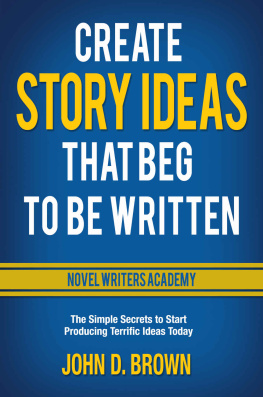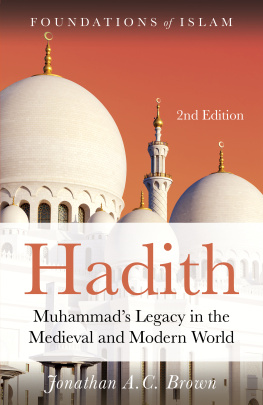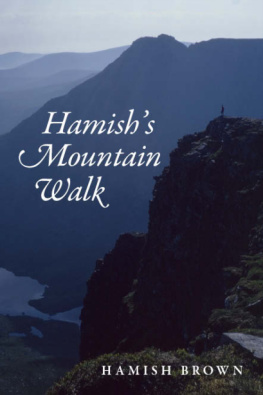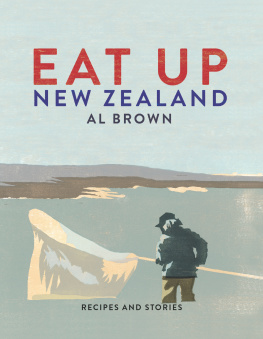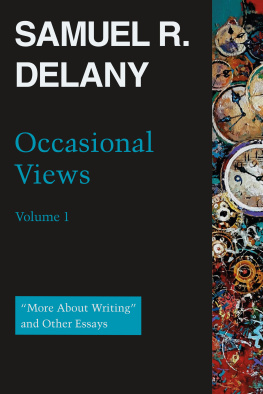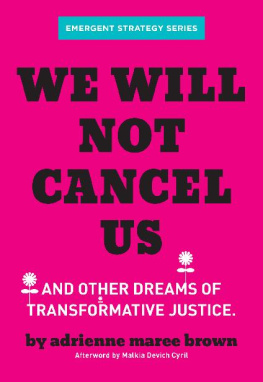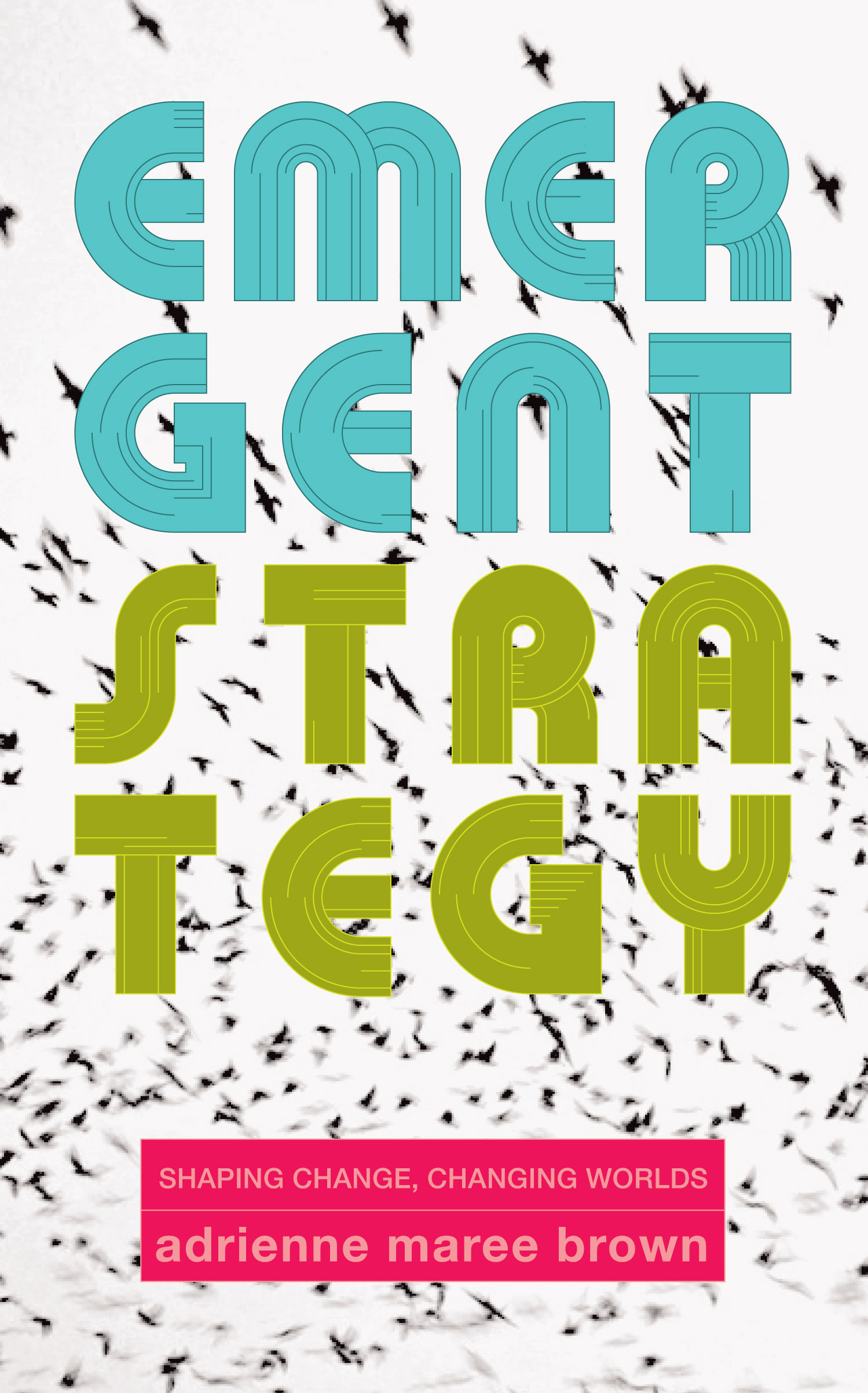This may only be a dream of mine, but I think it can be made real.
introduction
First and foremost, thank you for opening this book. I hope you enjoy reading it as much as I have enjoyed living, learning, and gath ering it.
Wherever you are beginning this, take a deep breath and notice how you feel in your body, and how the world around y ou feels.
Take a breath for the day you have h ad so far.
And a breath for this precious moment, which cannot be recreated.
Now, another for the day and nigh t coming.
Here you are, in the cycle between the past and the future, choosing to spend your miraculous time in the exploration of how humans, especially those seeking to grow liberation and justice, can learn from the world around us how to best collaborate, how to shape change.
As I am gathering and writing this book, there is a trail of ants moving along the ceiling of my room, and the sounds of a small jungle town coming in and out of the screened open windows, birds cawing, laughter, childrens delight emerging from that, then tears. A car backfires and I flinch, a lizard peeks at me from the door. Its been raining for a few days and the air fee ls thick.
I feel good, Ive been meditating, picking up my yoga practice, biking the two miles to the beach when the sun comes out. Something is injured in my knee, but I am feeling alive against m y limits.
I came to this edge of Mexico to pull a book together because, a few years ago, it was here, near this tiny portion of the massive ocean, that I began to realize how important emergent strategy, strategy for building complex patterns and systems of change through relatively small interactions, is to methe potential scale of transformation that could come from movements intentionally practicing this adaptive, relational way of being, on our own and wit h others.
The waves drifting me towards and then away from the shore, seabirds of all kinds flocking over the salty blue, pelicans dropping down and scooping schools of tiny fish into their big mouths. Diving under the moving surface to see how everything humans leave in the water is repurposed as an ecosystem. Laying in a hammock and watching mosquito mamas approach me, wait for my attention to wander so they can feed on my blood.
I love the scene at the end of The Matrix where Neo sees everything in green-on-black code. Emergent strategy is a way that all of us can begin to see the world in life-codeawakening us to the sacred systems of life all around us. Many of us have been and are becoming students of these systems of life, wondering if in fact we can unlock some crucial understanding about our own humanity if we pay closer attention to this place we are from, the bodies we are in.
The world is full of beauty, magic, miracles, and patterns that induce wonder. This book is a collection of essays, speeches, spells, interviews, conversations, tools, profiles, and poems sharing my learning processes in the face of that wonder. You are basically holding a book of me saying, Wow, everythings so amazing! Or, Thats not wow Why not go with the wow option?
Emergence is one of the best concepts I have learned for discussing this wow, this wonder. Emergence is the way complex systems and patterns arise out of a multiplicity of relatively simple intera ctions .
It is another way of speaking about the connective tissue of all that existsthe way, the Tao, the force, change, God/dess, life. Birds flocking, cells splitting, fungi whispering und erground.
Emergence emphasizes critical connections over critical mass, building authentic relationships, listening with all the senses of the body and the mind.
With our human gift of reasoning, we have tried to control or overcome the emergent processes that are our own nature, the processes of the planet we live on, and the universe we call home. The result is crisis at each scale we are aware of, from our deepest inner moral sensibilities to the collective scale of climate and planetary health and beyond, to our species in relation to space and time.
The crisis is everywhere, massive massive massive.
And we a re small.
But emergence notices the way small actions and connections create complex systems, patterns that become ecosystems and societies. Emergence is our inheritance as a part of this universe; it is how we change. Emergent strategy is how we intentionally change in ways that grow our capacity to embody the just and liberated worlds we long for.
A few words on what this book is and is not
I am offering this content as a cluster of thoughts in development, observations of existing patterns, and questions of how we apply the brilliance of the world around us to our efforts to coexist in and with this world as humans, particularly for those of us seeking to transform the crises of our time, to turn our legacy towards harmony.
This book is for people who want to radically change the world. To apply natural order and our love of life to the ways we create the next world. To tap into the most ancient systems and patterns for wisdom as we build tomorrow.
This book is not one that will teach you all about hard science, as I am not a scientist. As Octavia Butler said, I would never have been a good scientistmy attention span was too short for that.
My style is more Ooh ah wow how?? than Empirical data proves that I am writing this book primarily for other people like myself, who crinkle our brows and lean away when someone starts speaking math, who fall asleep almost immediately when attempting to read nonfiction, but who get spun into wonder about the natural world and want to know things, who feel and know more than we can say or explain, and want to know how knowing those things can transform the ways we approach changing t he world.
Im sure there are science people who could write a contrarian book to anything in here. The natural world actually supports any worldviewcompetitive, powerless, isolationist, violent.
For instance, humans so far have generally deified and aligned with the king of the jungle or forestlions, tigers, bears. And yet so many of these creatures, for all their isolated ferocity and alpha power, are going extinct. While a major cause of that extinction is our human impact, there is something to be said for adaptation, the adaptation of small, collaborative species. Roaches and ants and deer and fungi and bacteria and viruses and bamboo and eucalyptus and squirrels and vultures and mice and mosquitos and dandelions and so many other more collaborative life forms continue to proliferate, survive, grow . Sustain.
I want to understand how we humans do thathow we earn a place on this precious planet, get in the right relationship with it. So I am focusing on the ways creatures and ecosystems function together in and with the natu ral world.
I am open to critiques of course, if they are offered in the spirit of collective liberation. Staying focused on our foundational miraculous nature is actually very hard work in our modern culture of deconstruction. We are socialized to see what is wrong, missing, off, to tear down the ideas of others and uplift our own. To a certain degree, our entire future may depend on learning to listen, listen without assumptions or defenses. So I am open to hearing what doesnt work about this book, as long as you promise to stay open to what d oes work.


